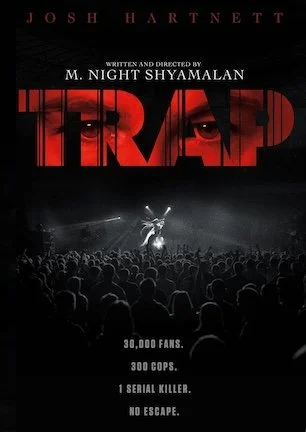Studio: Vertical Entertainment
Director: Jorge Dorado
Writer: Guy Holmes
Producer: Jaume Collet-Serra, Peter Safran, Juan Sola, Mercedes Gamero
Stars: Mark Strong, Taissa Farmiga, Saskia Reeves, Richard Dillane, Indira Varma, Noah Taylor, Alberto Ammann, Brian Cox
Review Score:
Summary:
A memory detective is assigned to enter the mind of a 16-year-old girl in order to find a link to her sociopathic behavior.
Review:
By employing a type of remote viewing psychic, the Mindscape Corporation has supplanted polygraph testing in the not too distant future with an agency of memory detectives who can enter a person’s mind and verify facts. Provided that person is not mentally falsifying evidence, of course. John Washington is one of Mindscape’s top investigators. Until his own memories bleed into those of a client’s after inadvertently recalling the image of his wife dead in a bathtub from suicide.
Things change while John recovers from his resultant seizure. To put John back on his feet, his boss Sebastian assigns him what should be the slam-dunk case of Anna, a 16-year-old girl on a self-imposed hunger strike. All John has to do is find the trauma triggering her behavior and cash the check from Anna’s rich parents. But what John finds in her mind is a slowly unraveling secret that hides the truth behind Anna’s past and the explanation for her sociopathic tendencies.
Despite that premise, “Anna” is not a futuristic sci-fi thriller focused on the science behind its concept. Nor does it paint a dystopian future Philip K. Dick fantasy of a Big Brother society impacted by psychic ability. Memory detectives are portrayed as merely a quiet aside, intended only to frame how the mystery is solved without the fiction becoming a distraction. “Anna” is otherwise grounded in a world where its landscape and tension feels both real and relatable.
With a deliberately measured pace and intentionally dreary mood, as the scenery is nearly always covered by dark hues and grey skies, the film instead takes its energy from the portraits painted of its central characters. “Anna” is a suspense thriller dependent upon the psychological drama depicted in the back and forth interplay between fractured investigator John and complicated teenager Anna.
Anna wants John to recognize her intelligence and to respect her for it without having to showboat her cunning. Taissa Farmiga injects a precise amount of smarmy sass that carefully sidesteps reading as overconfident arrogance. In the process, she makes Anna into John’s equal for their war of willpowers and takes Anna well past a predictable characterization of manipulative maturity beyond her years.
Always shown stubble-faced with two deep crevices between his eyebrows, Mark Strong is like a more intense version of Stanley Tucci as memory detective John. Only once does Strong betray his hidden British accent by referring to the girl as “Anner.”
John’s layered relationship with Anna and how it unfolds is the cornerstone of what makes “Anna” an intriguing watch. The best scenes always involve John and Anna together, wordlessly measuring one another for strengths and weaknesses. Although an unfortunate side effect of John’s role as passive observer in replayed memories is that a touch too much of Mark Strong’s screen time is devoted to him simply staring pensively.
The structure of the story itself is a little less balanced than the dynamic of the leads. A number of Chekhov’s guns are laid out naked in full view of the audience without much attempt at cleverness. An early scene makes an overly deliberate to-do about an accidentally bumped abacus, ending on a close-up of fallen pieces being returned to a table. A moment like this is such a sore thumb that when a photo is later shown depicting Anna with that same abacus, the viewer ends up in on the clue ahead of John.
While some segments feel the drag of a slowed tempo, other moments condense time in ways that unintentionally cloud details. With Anna and John’s backstories delivered piecemeal, holes are sometimes filled with dialogue such as, “It’s been two years. You should move on from what happened with your wife.” This is the kind of line that is spoken for the audience’s benefit rather than the character’s.
Like many twisty thrillers made to play with perception through misdirection, “Anna” leads to a final reveal that leaves behind some nagging questions when it is all said and done. The story basically builds into an elaborate plan to execute what turns out to be a somewhat simple endgame, and looking too deeply at the details can spoil satisfaction in the climax.
But “Anna” is more about the journey than the destination. Even if some pieces of the mystery are bobbled a bit, the rest of the production exudes enough confidence to sustain interest in the outcome and in the experience.
Even with his odd fascination for shooting down spiral staircases, cinematographer Oscar Faura captures a haunting tone filled with moody bleakness. And despite some staging hiccups story-wise, director Jorge Dorado excels where it matters most. And that is in tuning his lead actors into delivering performances that push “Anna” above its shortcomings to keep it engaging as a controlled thriller rich in personality and high on atmosphere.
NOTE: “Anna” was previously titled “Mindscape.”
Review Score: 70







At least the movie only runs 70 minutes, though I suppose that extra 10 technically disqualifies it from being a literal amateur hour.